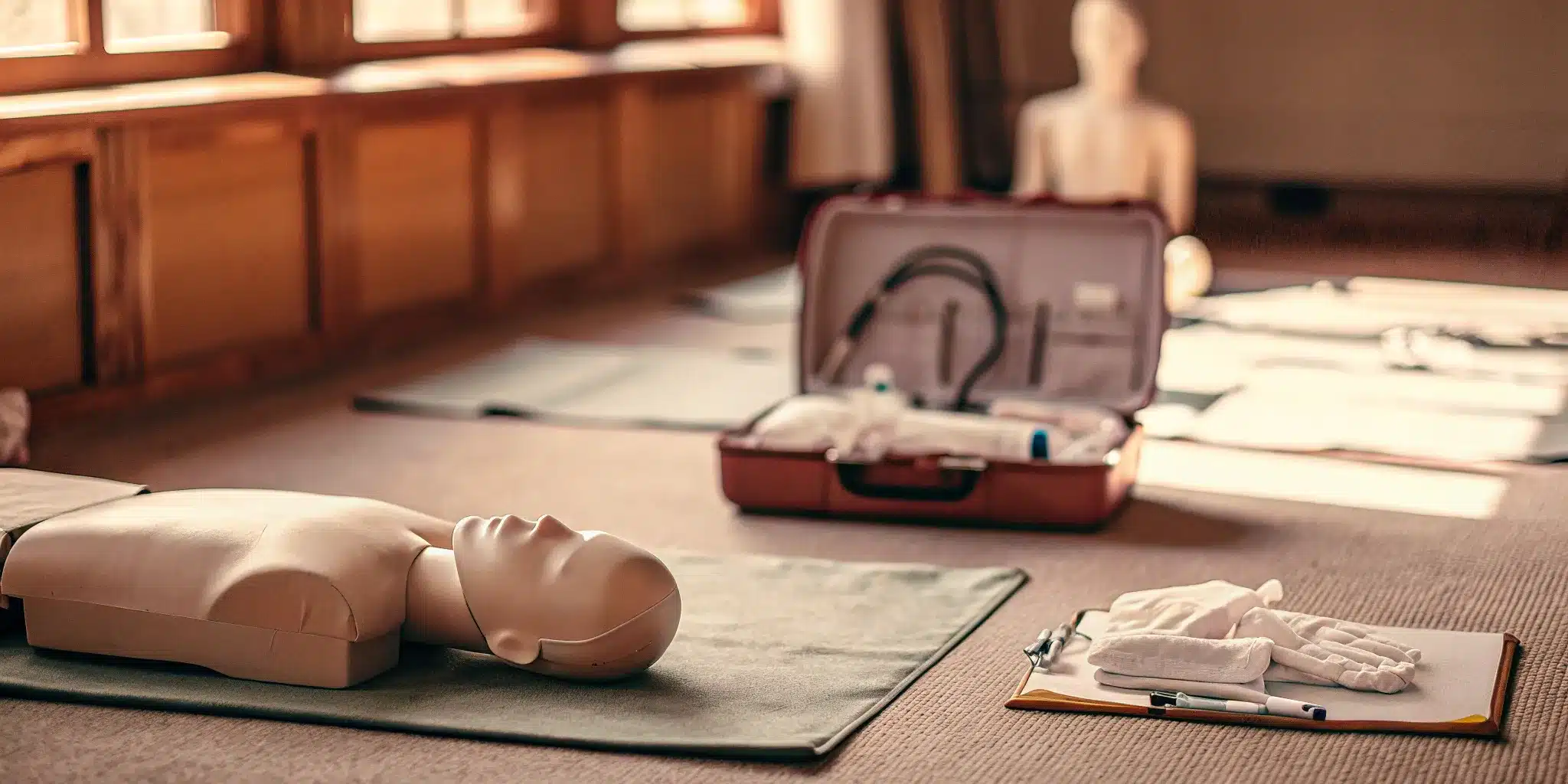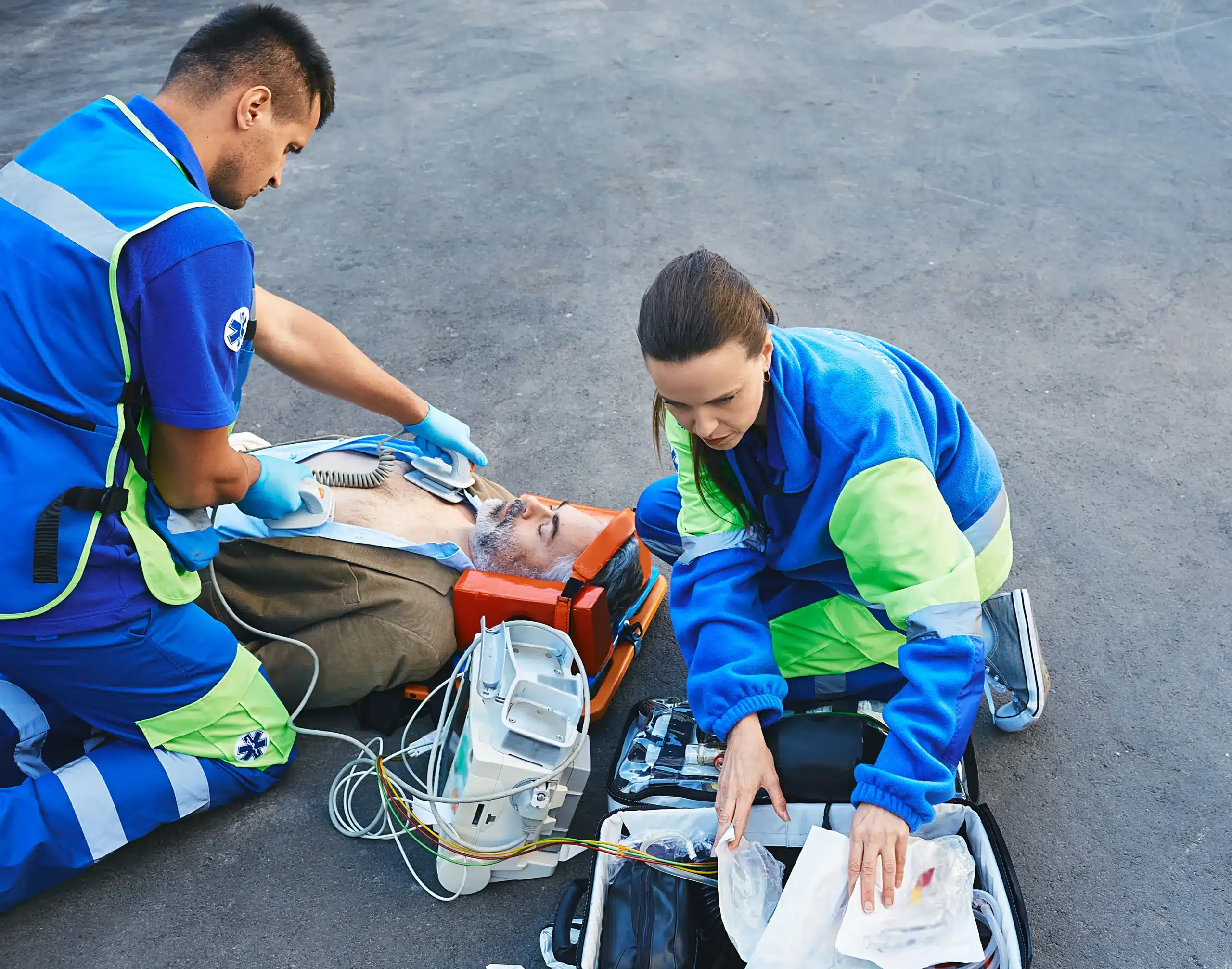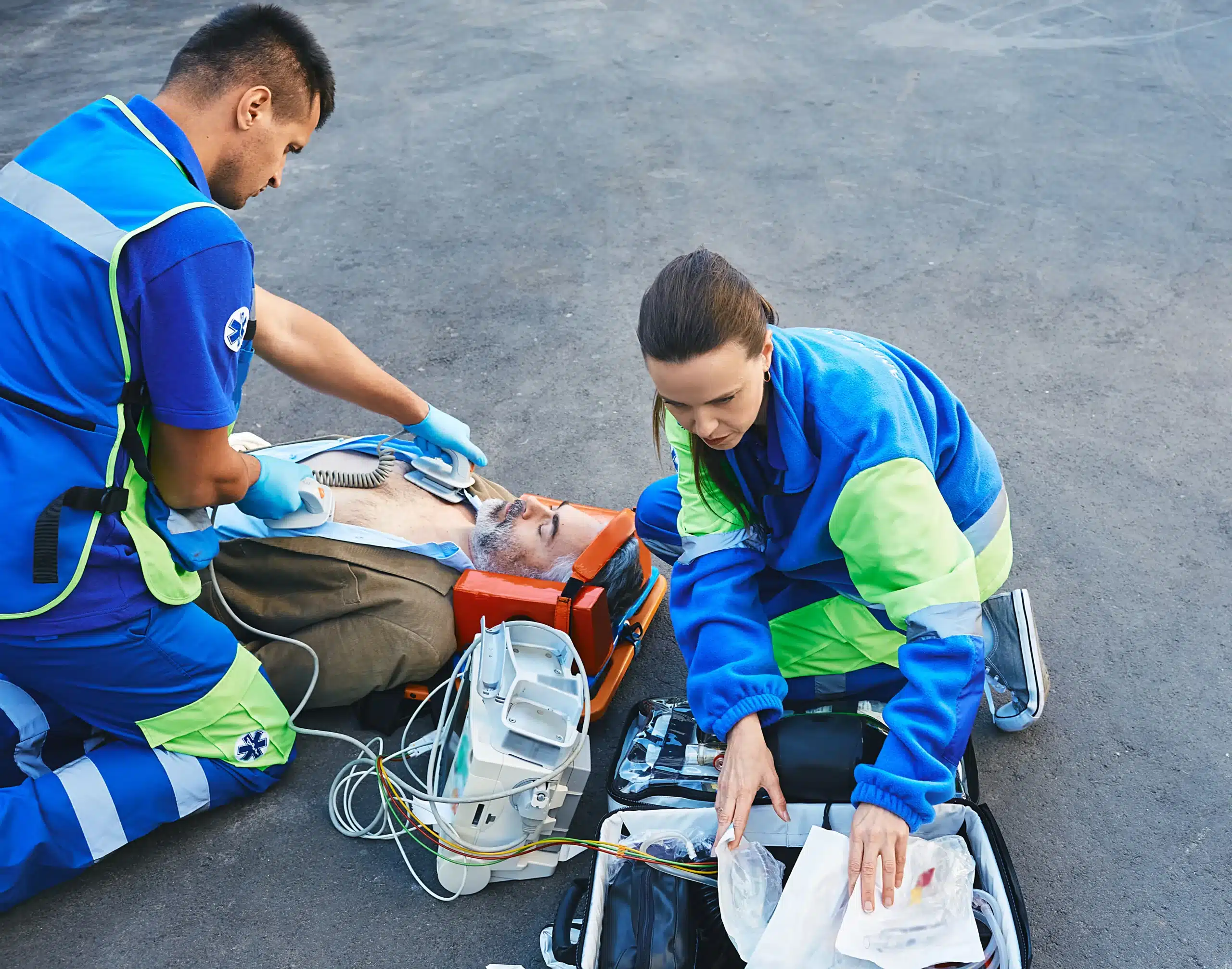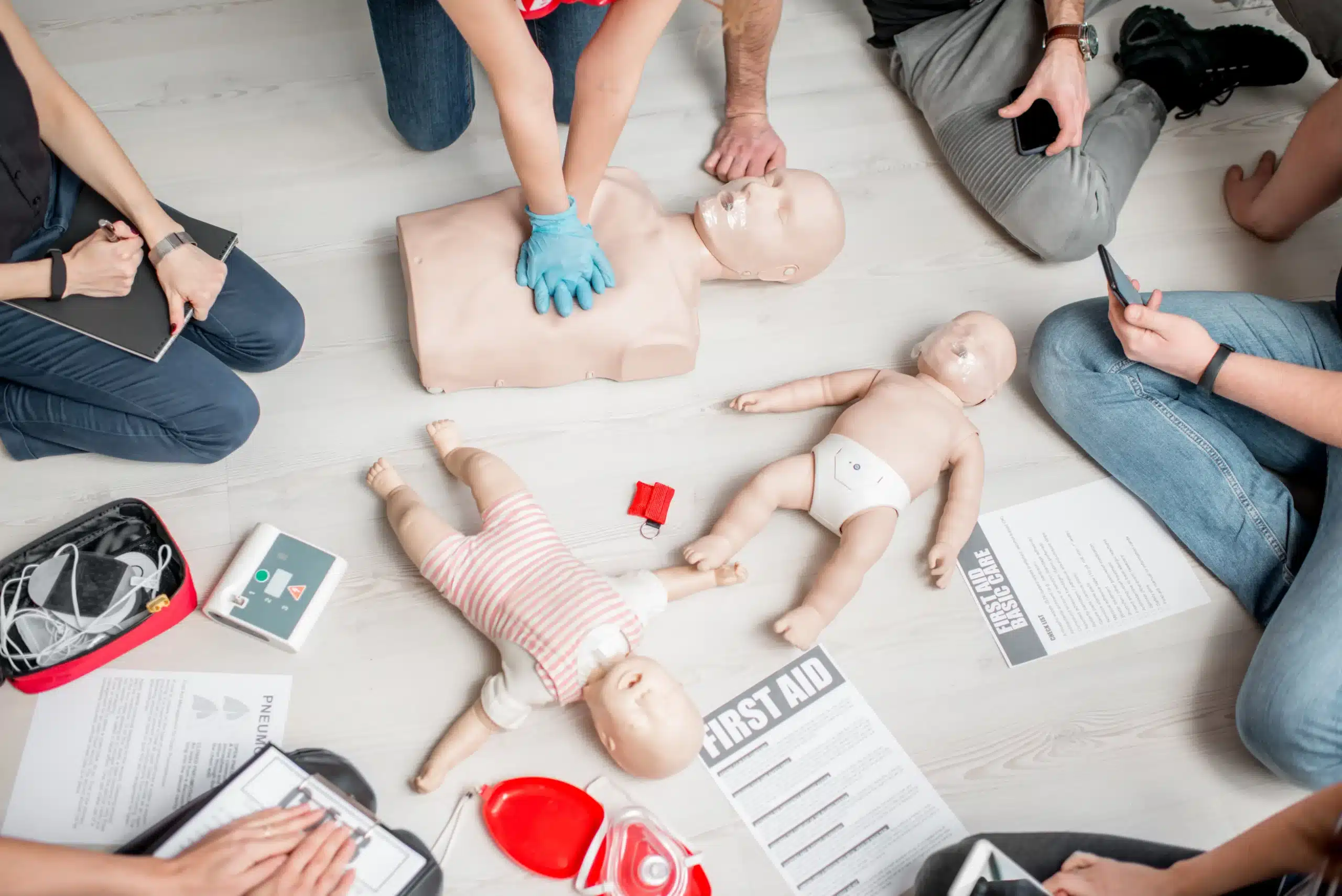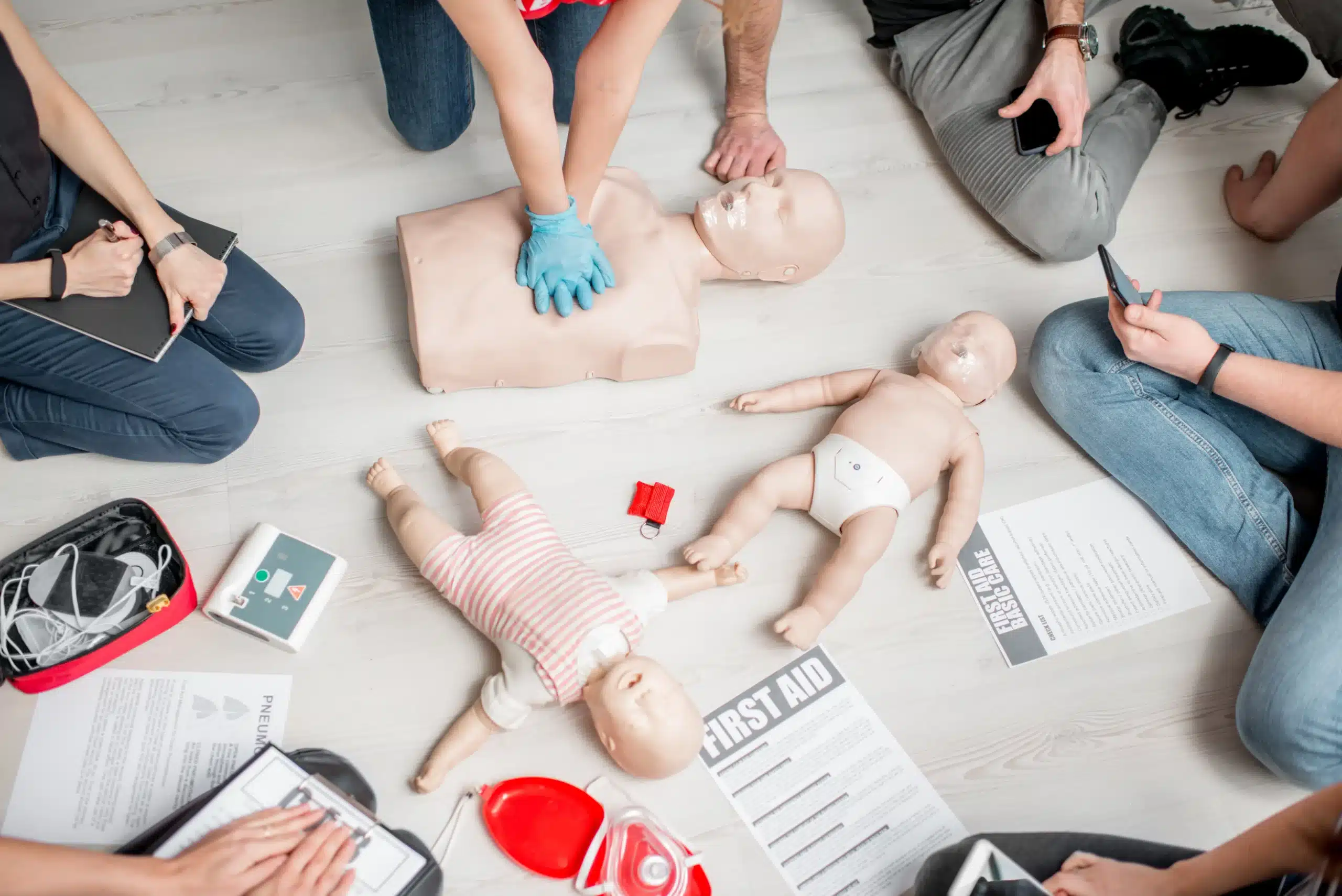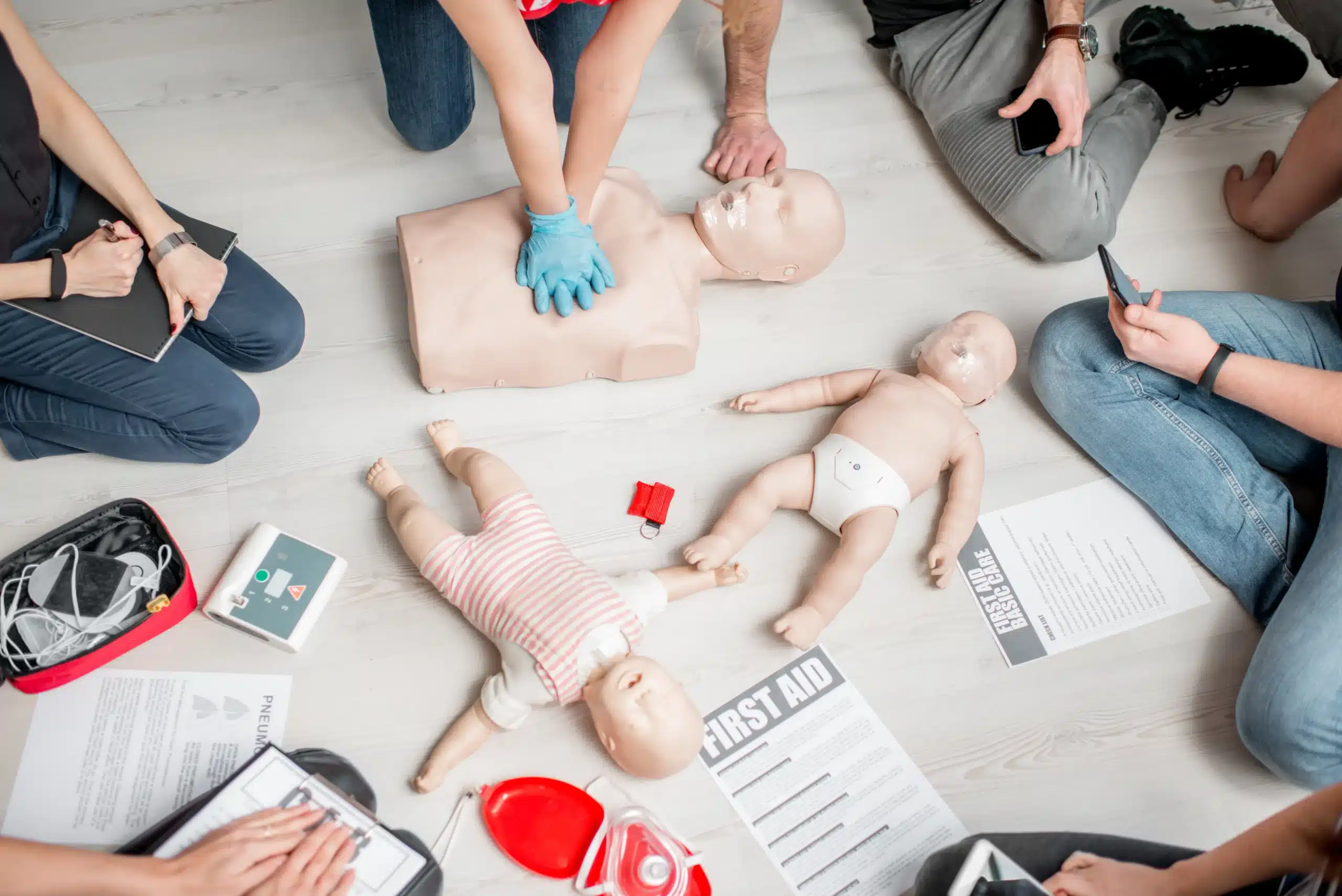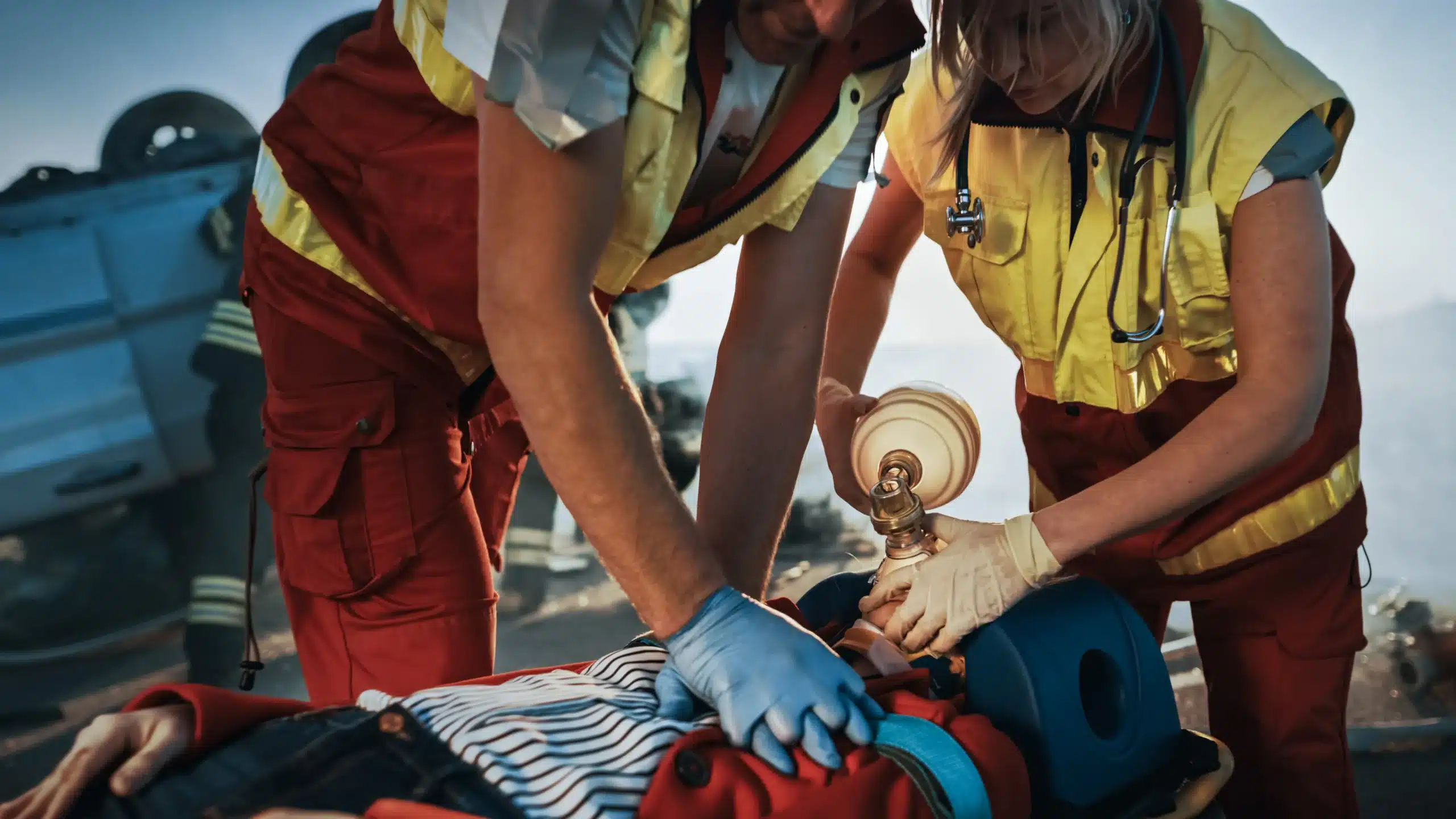Empowering yourself with life-saving skills starts with BLS certification. This guide is your go-to resource for everything related to BLS certification in Pleasant Hill. We’ll demystify what BLS is, who needs it, and where to find the best training programs in the area. From understanding the core curriculum to navigating the certification process, we’ll provide you with the information you need to make informed decisions. Whether you’re a healthcare professional, a student, or simply someone who wants to be prepared for any emergency, this guide will help you find the right BLS certification program in Pleasant Hill to meet your needs and goals. We’ll also explore the career benefits of BLS certification and discuss the latest trends in BLS training.
Key Takeaways
- BLS certification goes beyond basic CPR: It equips you with a broader range of skills, including airway management and the use of ventilation equipment, to handle various medical emergencies. Explore different course formats to find one that suits your learning style and schedule.
- Finding the right training provider is essential: Look for AHA-accredited centers like Safety Training Seminars, which offer comprehensive BLS courses, often with flexible scheduling and competitive pricing. Consider instructor qualifications and available resources when making your decision.
- Staying current with BLS skills is an ongoing commitment: Regular practice and refresher courses are vital for maintaining proficiency. Explore innovative programs like RQI, which offers a personalized and efficient approach to maintaining your BLS certification.
What is BLS Certification & Why It Matters?
This section clarifies what Basic Life Support (BLS) certification entails, why it’s valuable, and who can benefit. Whether you’re a healthcare provider, work in childcare, or simply want to be prepared for emergencies, understanding BLS is key.
What is Basic Life Support (BLS)?
BLS builds upon CPR. While CPR focuses primarily on chest compressions and rescue breaths, BLS provides a wider range of skills for healthcare professionals and first responders. It encompasses techniques for managing airway obstructions, using ventilation equipment, and understanding team dynamics during resuscitation. Think of BLS as a more comprehensive approach to life-saving measures, equipping you to handle both cardiac arrest and respiratory distress. The American Red Cross offers more information differentiating BLS and CPR certifications.
Key BLS Skills
BLS certification emphasizes practical skills and quick thinking. You’ll learn to recognize the signs of a life-threatening emergency and initiate the appropriate response. The training covers high-quality CPR, effective ventilation techniques, and the use of AEDs. BLS also emphasizes teamwork and clear communication in critical situations, ensuring coordinated and efficient care. The goal is to give you the confidence to act decisively and provide the best possible care during an emergency. Medicus Training highlights the importance of continuous BLS skills development.
Who Needs BLS Certification?
BLS certification is often a prerequisite for many healthcare professions. Nurses, physicians, paramedics, EMTs, and other healthcare providers typically require BLS certification. It’s also essential for those working in fields like dentistry, physical therapy, and athletic training. Beyond healthcare, BLS certification is valuable for firefighters, law enforcement officers, lifeguards, and anyone in a safety-sensitive role. Even if it’s not mandatory for your job, having BLS certification demonstrates your commitment to safety and your ability to respond effectively in a crisis. ACLS.com discusses the benefits of BLS certification for nurses. Consider BLS training an investment in your preparedness and the well-being of those around you. You can find BLS certification at Safety Training Seminars.
Top Pleasant Hill BLS Certification Providers
Finding the right BLS certification course can feel overwhelming, so we’ve compiled a list of reputable providers in Pleasant Hill to help you get started. We’ve also included some tips to help you choose the best fit for your needs.
Safety Training Seminars
Safety Training Seminars offers high-quality American Heart Association (AHA) BLS, ACLS, PALS, CPR, and First Aid courses. As an AHA Training Center, they adhere to the latest guidelines and use an approved curriculum. Their convenient daily class schedules make fitting training into your busy life easier. They also offer courses in nearby Walnut Creek.
Pleasant Hill CPR Training Center
Pleasant Hill CPR Training Center is another option for AHA-certified BLS training. With experienced instructors and a focus on a comfortable learning environment, they aim to provide comprehensive instruction in essential, life-saving techniques. Check their website for course schedules and availability.
American Red Cross
The American Red Cross is a well-known provider of BLS certification courses. Their training meets national standards and equips participants with the skills to respond confidently in emergencies.
Other Local Options
Beyond these providers, you might find other local options offering CPR and BLS training. Always verify a provider’s AHA Training Center affiliation if you need an AHA-aligned course. For example, Safety Training Seminars also provides various courses, including CPR, BLS, ACLS, PALS, and First Aid in Pleasant Hill. They offer flexible scheduling, including weekend and evening options. This can be helpful for those with busy schedules.
BLS Certification: Formats & Options
Choosing the right BLS certification format depends on your learning style, schedule, and preferences. Let’s explore the most common options.
In-Person Training
Traditional in-person BLS training offers a hands-on, immersive learning experience. Led by certified instructors, these courses provide real-time feedback and personalized guidance. You’ll practice skills in a structured environment alongside other students, allowing for collaborative learning and immediate clarification on any questions. In-person training is ideal for those who thrive in interactive settings and prefer direct instruction. Organizations like the American Red Cross offer comprehensive in-person BLS certification courses that meet national standards. Safety Training Seminars also provides in-person BLS training, giving you expert instruction and building your confidence to respond effectively in emergencies.
Online & Blended Learning
For flexibility and self-paced learning, online and blended learning options are excellent choices. Online BLS courses deliver the core curriculum through interactive modules, videos, and simulations. Blended learning combines online instruction with an in-person skills session, balancing independent study and practical application. This format lets you learn theoretical concepts at your own pace and then demonstrate your skills under the supervision of a certified instructor. Safety Training Seminars offers blended learning formats to meet diverse learning needs. Remember that even with online components, a practical skills assessment is typically required for BLS certification.
Compare Course Formats
When deciding between in-person, online, or blended learning, consider your learning style and schedule. In-person training provides a structured, interactive environment, while online and blended learning offer greater flexibility. Think about how you learn best and how much time you can commit. Both formats provide the knowledge and skills to perform BLS effectively. Regardless of format, continuous skills development is essential to maintain proficiency and preparedness for real-world emergencies. Regular practice and refresher courses will keep your skills sharp and ready to provide critical life support.
BLS Certification Costs in Pleasant Hill
Knowing the cost of BLS Certification in Pleasant Hill helps you budget effectively and find a course that fits your needs. This section breaks down average prices, factors influencing cost, and potential discounts.
Average Course Prices
BLS certification courses in Pleasant Hill typically range from $70 to $100 per person. This price often covers the comprehensive training and materials needed for American Heart Association (AHA) BLS CPR certification. Remember, various organizations, including Safety Training Seminars, offer a range of courses like BLS, ACLS, and PALS, often with competitive pricing. It’s always a good idea to compare options to find the best value.
Factors Affecting Pricing
Several factors can influence BLS certification course costs. The course format plays a big role. In-person classes often cost more than online or blended learning options due to the expenses of instructors, equipment, and physical space. The training provider’s reputation also matters. Established organizations like the American Red Cross or AHA sometimes have higher prices, reflecting their accreditation and training quality. Finally, the specific location within Pleasant Hill or surrounding areas can affect pricing due to varying facility costs and resource availability.
Discounts & Promotions
Many training centers in Pleasant Hill offer discounts to make BLS certification more affordable. Group discounts are common for businesses training multiple employees. Look out for seasonal promotions or early bird registration discounts to save money. Contacting providers directly to ask about potential discounts for students, military personnel, or healthcare professionals is always a smart move. You might be surprised at the savings!
BLS Course Duration & Scheduling
Finding the right BLS certification course often comes down to timing. How long is the course and when is it offered? Let’s break down the typical BLS course duration and explore some scheduling options.
Typical Course Length
BLS courses typically run between four and five hours for instructor-led training. Blended learning courses, which combine online modules with in-person skills sessions, usually take one to two hours online, followed by a two- to three-hour in-person session. This blended format offers a good balance between flexibility and hands-on learning. For a program overview, check out the BLS course details at Safety Training Seminars.
Flexible Scheduling
We understand that life gets busy. That’s why many providers, including Safety Training Seminars, offer courses seven days a week, with extended hours. This flexible approach makes it easier to fit BLS training into your schedule, whether you’re a healthcare professional, a student, or working around family commitments. For more information on flexible options, review Safety Training Seminars’ course schedule.
Accelerated Programs
Need your BLS certification quickly? Accelerated programs, like the RQI program offered by Safety Training Seminars, are designed for speed and efficiency. These programs often involve an online component followed by a skills test, with same-day certification card issuance upon successful completion. This streamlined approach is perfect for those who need certification urgently or prefer a more condensed learning experience.
What to Expect in a BLS Course
Getting ready for your BLS class? Here’s a preview of what you’ll learn and how the course is structured. Understanding the curriculum, hands-on components, and assessment process will help you feel prepared and confident on training day.
Course Curriculum
BLS training covers core life-saving skills, from recognizing life-threatening emergencies to providing high-quality CPR. You’ll learn how to use an AED, relieve choking, and provide rescue breaths. The curriculum also emphasizes teamwork and communication during emergencies. These fundamentals are essential for anyone seeking BLS certification.
Hands-on Practice
BLS isn’t just about theory—it’s about action. A significant portion of your class will involve hands-on practice working with training manikins to perform CPR, use AED trainers, and practice other essential skills. Instructors provide real-time feedback, helping you refine your technique and build the muscle memory crucial for responding effectively in a real emergency. These skills sessions typically last one to two hours.
Assessment & Certification
To earn your BLS certification, you’ll demonstrate competency in the theoretical and practical aspects of the course. This usually involves a written exam and a skills test, where you perform the learned techniques in front of an instructor. After successfully completing all course requirements, you’ll receive your BLS Provider card, valid for two years. This nationally recognized credential validates your basic life support skills and knowledge.
Maintain Your BLS Certification
Once you’ve earned your BLS certification, staying current is key. Knowing how to maintain your skills ensures you’re always prepared to respond effectively in an emergency.
Renewal Requirements
BLS certification is typically valid for two years. Check with your certifying organization, such as the American Red Cross, for specific renewal guidelines. Recertification courses cover the latest BLS guidelines and refresh your essential skills. At Safety Training Seminars, we offer convenient BLS renewal courses to help you maintain your credentials.
Continuing Education
Even between renewals, it’s important to keep your skills sharp. Look for opportunities to practice your BLS techniques and stay updated on any changes in guidelines. Continuous skills development is crucial for maintaining proficiency and responding effectively to real-world emergencies. Consider joining workshops or attending supplemental training sessions to reinforce your knowledge.
Keep Your Skills Current
Regularly reviewing the core principles of BLS, like chest compressions, ventilation, and AED use, builds confidence and improves your response time in critical situations. Effective teamwork is also a vital component of BLS. Mastering these skills can significantly increase the chances of survival for someone experiencing cardiac arrest or respiratory failure. Refresher courses and practice sessions, like those offered at Safety Training Seminars, can help you maintain these crucial skills.
Choose the Right BLS Provider in Pleasant Hill
Finding the right BLS provider is crucial for a valuable learning experience. Consider these key factors when making your decision:
Accreditation & Recognition
First, confirm the provider’s accreditation. Reputable organizations, like the American Heart Association (AHA), set national standards for BLS training. Safety Training Seminars is an AHA Training Center offering various courses, including BLS, ACLS, PALS, CPR, and First-Aid. This accreditation ensures your training aligns with widely accepted best practices and may be a requirement for certain jobs.
Instructor Qualifications
The instructor’s expertise directly impacts your learning. Ideally, your BLS course should be led by experienced healthcare professionals. Look for providers who emphasize a supportive and low-stress learning environment, which can make a real difference in your comfort level and ability to absorb the information. Ask about the instructors’ backgrounds and experience to ensure they meet your expectations.
Facility & Equipment
A well-equipped facility can significantly enhance your training. Modern equipment and resources create a more engaging and effective learning experience. Consider whether the facility offers online resources or blended learning options like our RQI program that might suit your learning style. A comfortable and accessible learning environment can also contribute to a positive experience.
Student Reviews
Finally, tap into the experiences of others. Reading reviews and testimonials can offer valuable insights into the quality of instruction, the facility, and the overall learning experience. While not all providers will have extensive reviews, platforms like Yelp can be a helpful starting point in your research. Don’t hesitate to ask the provider directly for references or testimonials, too. This can give you a more personal perspective on what to expect.
BLS Certification: Career Advancement Benefits
Industries Valuing BLS
BLS certification is a valuable asset across many industries. It’s particularly critical in healthcare, where professionals regularly encounter situations requiring immediate medical assistance. From doctors and nurses to paramedics and emergency medical technicians (EMTs), BLS skills are fundamental. Beyond healthcare, other sectors like education, childcare, and even some corporate environments recognize the importance of having BLS-certified personnel. For example, many schools require their teachers and coaches to maintain current BLS certification to ensure a prompt and effective response to medical emergencies, creating a safer environment for students and staff. Similarly, childcare providers often seek BLS training to handle emergencies involving children in their care. Even in office settings, having employees trained in BLS can be a significant advantage in managing workplace incidents.
Professional Development
Earning your BLS certification demonstrates a commitment to professional growth and enhances your skill set. It shows potential employers you’re prepared to handle critical situations and prioritize safety. For healthcare professionals, BLS certification is often a prerequisite for employment and a stepping stone to advanced certifications like Advanced Cardiovascular Life Support (ACLS) or Pediatric Advanced Life Support (PALS). These advanced certifications build upon the foundational skills learned in BLS, allowing healthcare providers to manage more complex medical emergencies. Even outside of healthcare, BLS certification can make you a more valuable employee. It equips you with life-saving skills applicable in various situations, increasing your confidence and preparedness. This commitment to ongoing learning can set you apart from other candidates and open doors to new opportunities.
Job Prospects
BLS certification can significantly improve your job prospects, especially in healthcare. Many healthcare employers require BLS certification as a condition of employment. This is particularly true for roles involving direct patient care, such as nursing. Holding a current BLS certification can give you a competitive edge in the job market, increasing your chances of securing desired positions. Furthermore, maintaining your certification, which typically requires renewal every two years, demonstrates a dedication to staying up-to-date with the latest life-saving techniques. This continuous improvement can further enhance your career trajectory and open doors to advancement opportunities. If you’re looking to improve your career prospects and contribute to a safer environment, consider exploring the BLS courses offered by Safety Training Seminars.
Latest in BLS Training
Staying up-to-date on the latest advancements in Basic Life Support (BLS) is critical for providing effective care in emergencies. This section covers key developments in BLS training, including technology integration, the importance of continuous learning, and the innovative RQI program.
Technology Integration
Technology plays an increasingly important role in BLS training, offering engaging and efficient learning experiences. Interactive simulations and online modules create realistic scenarios that allow healthcare providers to practice their skills in a safe environment. These tech-forward approaches can enhance knowledge retention and improve real-world performance. Many training centers, like Safety Training Seminars, leverage technology to deliver comprehensive and convenient BLS certification courses.
Continuous Learning
Regularly refreshing your BLS skills is essential for maintaining proficiency and confidence in emergency situations. Medical guidelines and best practices evolve, so ongoing training ensures you’re always prepared to deliver the most effective care. Consider incorporating continuous learning into your professional development plan to stay sharp and adaptable. Medicus Training offers valuable insights into the importance of continuous BLS skills development.
RQI Program for Healthcare Professionals
The American Heart Association’s Resuscitation Quality Improvement (RQI) program represents a significant advancement in BLS training, particularly for healthcare professionals. RQI moves away from the traditional classroom model and embraces a more flexible, personalized approach. The program combines online learning with low-dose, high-frequency skills sessions and uses performance data to tailor training to individual needs. This innovative method helps healthcare providers maintain peak performance and ensures they’re always ready to respond effectively in critical situations. Safety Training Seminars offers convenient access to RQI classes that streamline the certification process, including an online portion, skills evaluation, and same-day card issuance.
Related Articles
- First Aid Certification Walnut Creek: Your Guide – Walnut Creek CPR Classes
- CPR Training in Walnut Creek: Your Complete Guide – Walnut Creek CPR Classes
- Why CPR is Important in Healthcare – Walnut Creek CPR Classes
- BLS CPR Classes in Walnut Creek, CA – Walnut Creek CPR Classes
- Course Preparation – Walnut Creek CPR Classes
Frequently Asked Questions
How does BLS differ from standard CPR?
BLS builds upon the foundational skills of CPR. Think of CPR as the first step, focusing primarily on chest compressions and rescue breaths. BLS expands on this, adding essential skills like airway management, using ventilation equipment, and understanding team dynamics during resuscitation. It’s a more comprehensive approach designed for healthcare providers and first responders.
What career opportunities are available with BLS certification?
BLS certification opens doors to various career paths, especially in healthcare. It’s often a prerequisite for roles like nursing, emergency medical services, and other allied health professions. Even outside of healthcare, BLS certification can enhance your resume, demonstrating your preparedness for emergencies and commitment to safety. This can be a valuable asset in fields like education, childcare, and other public-facing positions.
Are there different learning formats for BLS certification?
Absolutely! BLS certification courses are available in various formats to suit different learning styles and schedules. Traditional in-person classes offer a structured, hands-on experience. Online and blended learning options provide more flexibility, combining online modules with in-person skills sessions. Choose the format that best fits your needs and learning preferences.
What is the typical cost of a BLS certification course?
BLS course costs can vary depending on the training provider, location, and course format. Generally, you can expect to pay between $70 and $100 for a BLS certification course. Look for potential discounts, such as group rates or early bird registration, to make the training more affordable.
How can I maintain my BLS certification after completing the course?
BLS certification typically requires renewal every two years. Check with your certifying organization for specific renewal guidelines. Even between renewals, staying current with the latest guidelines and practicing your skills is essential. Consider refresher courses or continuing education opportunities to maintain your proficiency and confidence in responding to emergencies.
